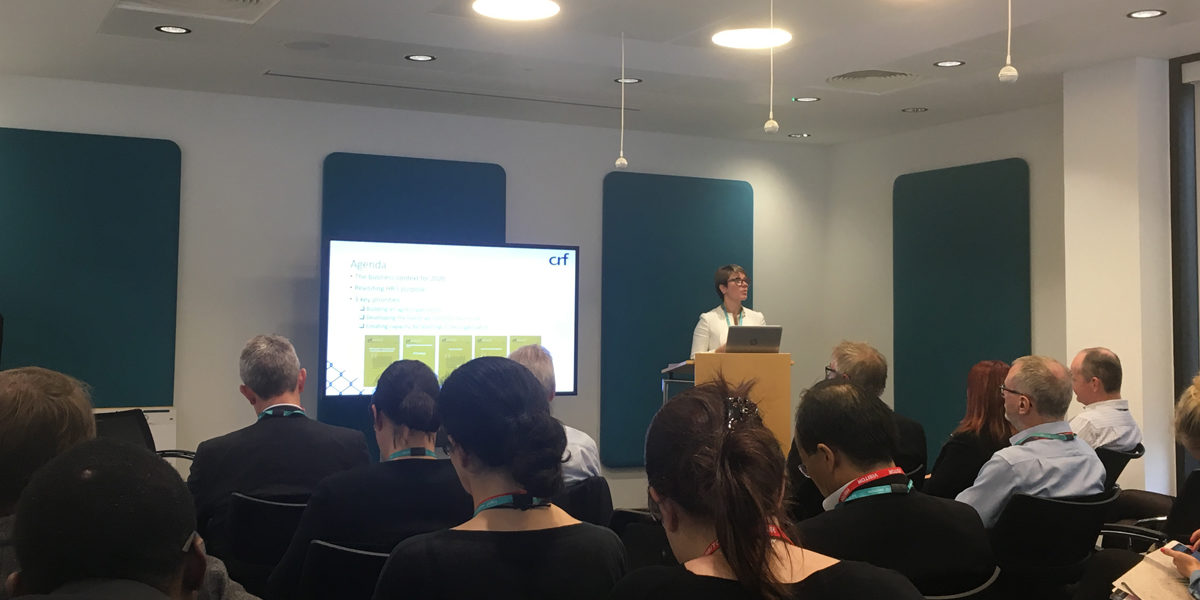Last Wednesday (11th October 2017) saw our third Tap’d Solutions HR Forum. This successful format of interesting content from keynote speakers and group discussion of senior HR professionals has proven very popular this year. In this blog I’m going to reflect on a few of the key points made during the half-day session. For more details on our Events, go to tapdsolutions.com.
Last week’s Forum was entitled: “Transforming HR: The Skills and Strategies needed for 2020” and we were really happy to have the following two keynote speakers:
- Gillian Pillans – Research Director, Corporate Research Forum
- Sian Harrington – Editorial Director and Co-Founder of The People Space
The Forum begun with a scene-setting that looked at the turbulent future landscape that HR leaders are having to deal with through the lens of a VUCA (Volatility, Uncertainty, Complexity, Ambiguity) world. These included:
- Volatility – Increasing unpredictability of climate change (recent hurricanes)
- Uncertainty – Current North Korea / US tensions and the call for Catalan independence
- Complexity – Legislative changes e.g. GDPR, the effect of free speech coming into work and the arrival of Big Data and Analytics
- Ambiguity – possibility of Gig workforce legislation andthe unknown unknowns of Brexit
The focus was how external culture and change always leaks into organisation culture. How do we adapt?
Sian Harrington: Sian looked into the business context and what this meant for HR…
Data is driving business performance
Sian commented that if culture eats strategy for breakfast, then data is eating both of them for breakfast, lunch and dinner! Data is the new oil. It has immense value. Yet 90% of all data has been created in the last two years. Those who master the value of data will win in business. She identified three areas this has happened in already:
- Telecoms – Traditional mobile phone companies versus the rise of Whatsapp
- Hotels – The global hotel chains challenged by AirBnB with it’s diverse offer
- Insurance – Long standing mature companies competing with app-based, quick settlement companies like Lemonade who give excess profits to charity
The expected life-span of large companies is now reducing to an average of 15 years.
Sian also spoke about the relationship between technology and value with respect to value delivery and value creation.
Value delivery: Using technology to make efficiencies either as a workforce tool for effectiveness or emerging bot-based replacement for repetitive and predictable tasks has allowed employees to focus on more complex needs of the business. Both aim to raise productivity by direct application.
Value creation: Here technology is being used to give insight into vast data resources to answer complex questions. The use of HR Analytics gives the opportunity for HR leaders to find areas of high performance and seek to replicate this in the future and/or in other areas.
This separation of HR technologies helped the delegates understand how to seek out better ways to use technology in business.
Gillian Pillians: Gillian brought to life research she and the Corporate Research Forum (CRF) have conducted around agility, developing talent and the capacity for learning.
The CRF make the following statement in their HR Manifesto (January 2017):
HR’s role is not to do HR ‘stuff’ but to build the capability of the organisation to deliver its strategy and create sustainable value for its key stakeholders
The people or the organisation?
Gillian used a great football analogy from the recent Euros in 2016 (Iceland and England) to highlight the balance that business must achieve between developing the context transmitted by the business and the capability of its people. By creating a compelling narrative that people believe in and will commit to magnifies the abilities of the individual.
How do you improve context?
- Leadership
- Stimulating Values
- Appropriate structure
- Clear processes for Talent Management
- Openness
- Extrinsic motivation
How do you improve capability?
- Hire intellect
- Develop knowledge and skills
- Give experience
- Intrinsic motivation
Obtaining a focus on context and capability is a great way for a business to focus on creating high probability of high performance.
Learning is the foundation for agility and sustainable performance
Another interesting area that Gillian focused on was creating the capacity for learning. Gillian reviewed two dimensions that were key to understanding where to focus resources to get value from development: productive vs. generative learning and the individual vs. the organisation as a focus.
- Individual/Productive: Learning that is focused on helping an individual improve performance in their role.
- Individual/Generative: Helping individuals learn key skills to enable them to generate new ideas and strategies.
- Organisational/Productive: Working in teams on increasing efficiency or productivity in the existing business.
- Organisational/Generative: Using the collective wisdom of the team or organisation to come up with new solutions, identify new markets, and challenge existing assumptions.
An excellent way of separating the development of “current skills” versus “future talent”. See the Tap’d Solutions 6 HR Challenges on our home page for more on this.
If you found this brief summary interesting then sign up to our next webinar and forum and join the discussion around getting insight into the HR Challenges for senior leaders.
Finally, I would like to extend my thanks to Gillian and Sian for their time and efforts in supporting our forum. You can find out more about them here:
Sian Harrington: www.thepeoplespace.com https://www.linkedin.com/in/sian-harrington-7546394/
Gillian Pillans: www.crforum.co.uk https://www.linkedin.com/in/gillian-pillans-3b78301/


